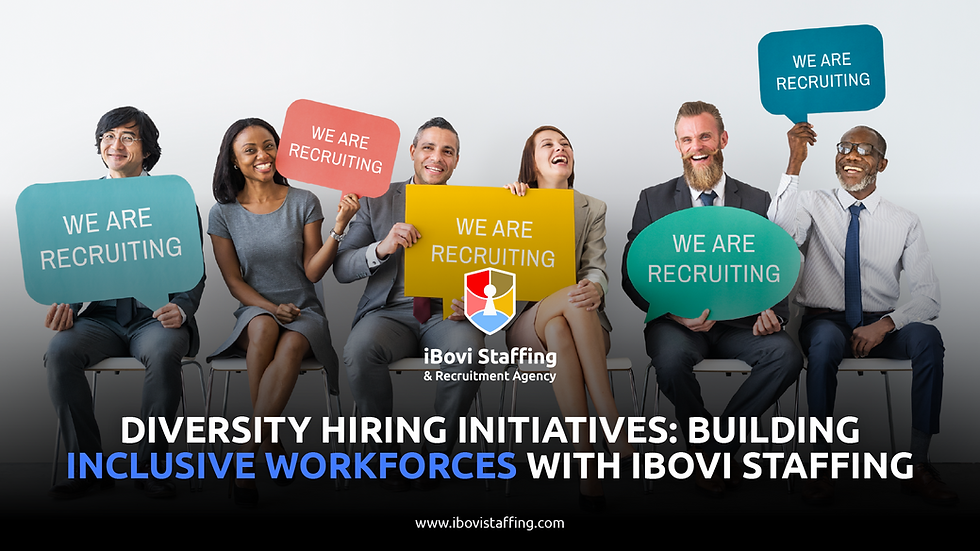Striking the Right Balance in Recruitment: Soft Skills vs. Hard Skills
- Arnim Sharma

- Jan 10, 2024
- 4 min read
Updated: Feb 27, 2025

Table of Contents:
1. Introduction
9. Conclusion
In the dynamic landscape of recruitment, employers are constantly seeking the perfect balance between soft skills and hard skills in potential candidates. While hard skills are specific, teachable abilities that can be quantified, soft skills encompass interpersonal traits that contribute to a person's overall effectiveness in the workplace.
Achieving equilibrium between these two skill sets is crucial for building a robust workforce. This blog explores the importance of striking the right balance in recruitment and the role soft and hard skills play in shaping a successful team.
Understanding Hard Skills
Hard skills are the tangible and technical proficiencies that can be measured and quantified. They are often specific to a particular job or industry and are typically acquired through education, training, or experience.
Examples of hard skills include proficiency in programming languages, data analysis, project management, and other job-specific technical abilities. While hard skills are crucial for performing job-related tasks, they are not always sufficient on their own.
The Crucial Role of Hard Skills in Job Performance:
Hard skills are the backbone of job performance, providing individuals with the technical and quantifiable expertise needed to excel in specific roles. These skills are often job-specific and are acquired through education, training, or hands-on experience.
In technical fields such as programming, engineering, or data analysis, possessing the necessary hard skills is paramount for executing tasks with precision and efficiency.
For instance, a software developer needs programming languages like Java or Python to code effectively, and a data analyst relies on statistical tools to interpret complex datasets. The mastery of hard skills not only ensures that tasks are completed competently but also instills confidence in employers that their workforce possesses the technical prowess required for success in a given industry.
The Limitations of Relying Solely on Hard Skills
While hard skills are essential for job performance, relying solely on them can lead to a workforce lacking in adaptability and collaboration. In today's fast-paced and interconnected work environment, employers recognize the need for employees who can navigate complex situations, communicate effectively, and collaborate seamlessly. This is where soft skills come into play.

Understanding Soft Skills
Soft skills, also known as interpersonal or people skills, are the intangible qualities that enable individuals to work well with others, communicate effectively, and navigate social situations.
These skills are often overlooked but are critical for fostering a positive work environment and driving overall team success. Examples of soft skills include communication, teamwork, adaptability, problem-solving, and emotional intelligence.
Importance of Soft Skills:
While hard skills are essential for task execution, soft skills play a pivotal role in fostering a harmonious and productive work environment. Communication, teamwork, adaptability, problem-solving, and emotional intelligence are examples of soft skills that contribute to effective collaboration and interpersonal relationships. In today's interconnected and diverse workplaces, soft skills are increasingly recognized as crucial for success.
Employees with strong soft skills can navigate complex social dynamics, resolve conflicts, and work collaboratively across teams. A workforce equipped with robust soft skills not only enhances internal cohesion but also improves client interactions and customer satisfaction. Soft skills are particularly valuable in leadership positions, where effective communication and emotional intelligence are essential for guiding teams and driving organizational success.
Overall, the importance of soft skills extends beyond individual performance, influencing the overall culture and success of the workplace.
Integrating Soft and Hard Skills for Workplace Flourish:
Achieving a harmonious balance between soft and hard skills is the key to building a flourishing workplace. While hard skills ensure the technical competence needed for job-specific tasks, soft skills contribute to effective collaboration, communication, and adaptability.
Employers seeking to create a well-rounded workforce should integrate both skill sets into their recruitment and development strategies. This can involve incorporating soft skill assessments in the hiring process, providing ongoing training programs to enhance both technical and interpersonal abilities, and fostering a culture that values and rewards a combination of hard and soft skills.
In doing so, organizations can cultivate a dynamic and resilient workforce that not only meets the demands of the job but also contributes positively to the overall workplace environment. The integration of soft and hard skills is the foundation for a successful, adaptable, and future-ready workforce.
Striking the Right Balance
Recruiters face the challenge of identifying candidates who possess both the necessary hard skills and the essential soft skills to thrive in a particular role. Striking the right balance between the two is essential for building a well-rounded team that can not only perform job tasks efficiently but also collaborate and adapt to changing circumstances.
Job-Specific Requirements: Identify the critical hard skills required for a specific job role. These may include technical expertise, industry-specific knowledge, or certifications. Clearly define these requirements to streamline the recruitment process.
Assessing Soft Skills: Incorporate methods to assess soft skills during the recruitment process. This can include behavioral interviews, role-playing exercises, or personality assessments. Look for candidates who demonstrate strong communication, teamwork, and problem-solving abilities.
Cultural Fit: Consider the organization's culture when evaluating candidates. A candidate might have exceptional hard skills, but if their values and interpersonal style do not align with the company culture, it could lead to dissatisfaction and conflicts within the team.
Training and Development: Recognize that some soft skills can be developed and strengthened over time. Implement training programs and mentorship opportunities to enhance the soft skills of existing employees, ensuring continuous improvement.
Conclusion
In the ever-evolving landscape of recruitment, the importance of striking the right balance between soft skills and hard skills cannot be overstated. While hard skills are the foundation for job performance, soft skills are the glue that holds a team together and contributes to a positive work culture.
Employers who prioritize both aspects during the recruitment process are better positioned to build resilient, adaptable, and high-performing teams that can navigate the challenges of today's competitive business environment.




Comments